International Spotlight with Country Profile: Myanmar
May 13, 2021
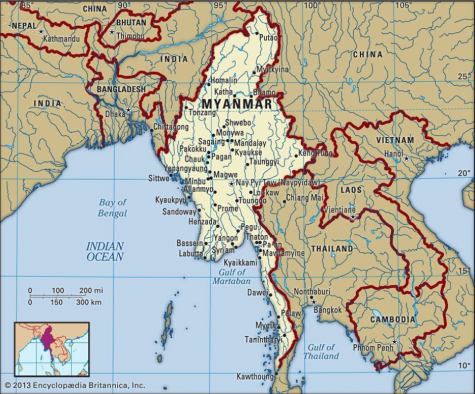
COUNTRY PROFILE:
Myanmar is the largest country in Southeast Asia. Formerly known as Burma, it has almost 55 million inhabitants, over a third of the population living in rural areas. Myanmar’s current capital is Naypyidaw, with almost one million residents. It is home to many old palaces and temples built from the Pagan period, its history rich and full. It shares its borders with Thailand, Laos, China, India and Bangladesh and has a coastline on the Bay of Bengal, the Gulf of Mottama and the Andaman Sea. There are eight major minority groups–Rakhine, Chin, Karen, Kayin, Wa, Kachin, Mon and Shan–yet there are many more minority groups, including the Rohingyas. Unfortunately, these tribes continue to face immense oppression from the military. The main language is Burmese, and most of the country is covered by the jungle, making it resource-rich. But due to excessive logging and forestry being one of the main exporting goods in Myanmar, cities and rural areas alike suffer from deforestation.
STATEMENT OF ANONYMITY FROM AUTHOR:
I choose to not only write this story anonymously but to not disclose other people who are quoted in this article because of three reasons. The first and main reason is that in no way will I ever want to put my family in harm’s way. Any public statement against Myanmar’s military rule can justify the discrimination and abuse of one person–there is no law or order in Myanmar when their constitution can be interpreted to be against our favor. My family members have been under the government’s watchful eyes for a number of years, and one mistake can forbid our immediate family to see our close relatives back at home. Second, I choose to not name the people that I interview to not disrupt their hard work and perseverance in Myanmar. Most sources live in the country right now, actively fighting everyday to protect Myanmar’s future. If their location or identity is found, consequences are dire. I am lucky enough to have contact with them and that is already a big risk to them. Third of all, I do not want recognition for writing this article. When it comes to this grave issue about genocide and mass suppression, my being and ties, though a good anecdote, are the least important to add to the story. My wish is for the readers to read and understand the gravity of this subject.
STATEMENT OF ANONYMITY FROM THE FANFARE:
Usually, The Fanfare does not allow for anonymous sources, however we felt that this article was a special case as revealing the author might put the author and their family in danger. So, too, would revealing their sources. We do not take using anonymous sources lightly, but feel that this situation is justification for using it now.
MYANMAR’S CIVIL DISOBEDIENCE MOVEMENT AND ITS CONSEQUENCES
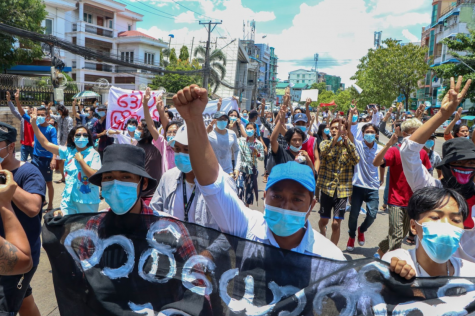
I am Burmese-American. Born and raised in Florida, yet I have been immersed in the Burmese culture at home. Ever since I was five years old, I would live in my grandma’s house in Myanmar for two to three months, and until last year, I have been going there every summer.
I have parents who lived through the time period of Myanmar where socialism was forced onto the people. It was a version of socialism where there were people in power who were driven by greed and money, using weapons and manipulating for personal gain.
I have grandparents who lived in the heart of universities at the time when the government oppressed higher education. My grandfather was a professor at one of the universities and my grandmother was a leader in the education field. They were the ones who saw the rise of power of dictator Ne Win, the ones who witnessed the massacre of tens of thousands of young activists, many of them their students.
I have parents who immigrated from the military-run government in order to create a new life in a fairer environment. Though they have made a stable financial income in the United States, they were always adamant to my sister and I about understanding the political issues in Myanmar. It is their home, their country, and they have never stood for the Myanmar government run by Tatmadaw, the Myanmar military.
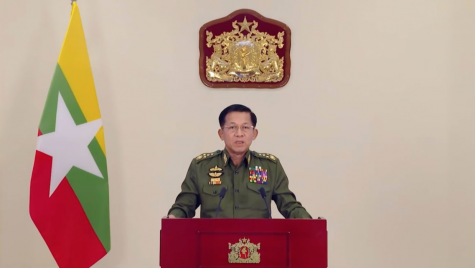
Since the 1960s, Myanmar has dealt with issues of nationwide censorship, political injustice, military brutality, discrimination against minority tribes and violations against human natural rights. All these issues intertwine to create a hostile country for civilians to speak their opinions. Additionally, civilians find their freedom to protest severely limited.
On February 1st, 2021, Myanmar’s military seized power and declared a year-long state of emergency. After the 2020 presidential election in November, the National League of Democracy (NLD) won with approximately 80% of the people’s votes, earning Nobel Peace Prize winner and political activist Aung San Suu Kyi the power to lead the country towards democracy. Tatmadaw’s (the official name of the armed forces) Union Solidarity Development Party (USDP) rejected the challenging party’s victory.
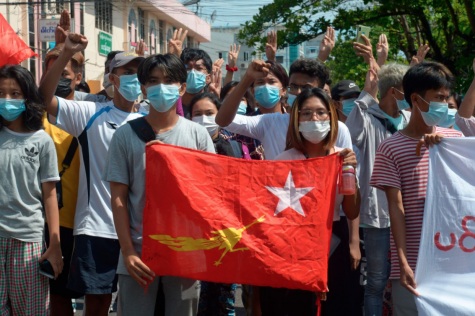
NLD’s primary goal was to lead the country in allying itself with a government that involved more voices to be heard, while avoiding the retaliation of Tatmadaw. Yet the retaliation from the military became inevitable–the threat of losing the power they held after many decades forced a military coup d’etat, detaining almost all officials of NLD and leaving the country in a frenzy.
The USDP detained members of the NLD party, claiming the election was faulty. After ruling the country with terror since dictator Ne Win’s rule in 1962, the military has always maintained a strong hold on Myanmar’s economic and political positions in the government. This coup is not the first time the military has abused its power with political activists or the first time the military has refused to give up power after the NLD won the popular vote.
In 2021, The Washington Post reported that a month after the state of emergency, a reported 400 civilians had been killed by the military.
When I interviewed, the founding member of an organization that specializes in rescuing minority tribes in Myanmar and escaping from the military/police, they said, “The dictators and many of the military and police are acting evilly [sic], murdering and torturing people. The military and police are not legitimate as they are arm[ed with] illegal and oppressive dictatorship.”
Most of the civilians who passed away during the coup d’etat were constant supporters of Aung San Suu Kyi and her party, showing their support on social media.
Unfortunately, their support is what led to their demise and to the military’s violence towards them. According to a born and raised citizen of Yangon, who will remain anonymous for fear of reprisal, the former capital of Myanmar, had many reported sightings of “military dressed as policemen fleeing with murdered citizens’ bodies… [S]ome take the body away, only to dump it elsewhere a few days later.” These citizens remain anonymous due to the political climate that Myanmar is in right now–any person who protests or criticizes against the government, no matter how trivial, can suffer major backlash and possibly be in harm’s way.
Policemen were reported to be seen disfiguring victims’ face and body when the bodies are taken away, brutalizing the body in order to then burn the body due to its unsightliness. Cremation is usually avoided because in Myanmar, the preservation of the body is important for reincarnation to their next life (as Buddhism is Myanmar’s prevalent religion).
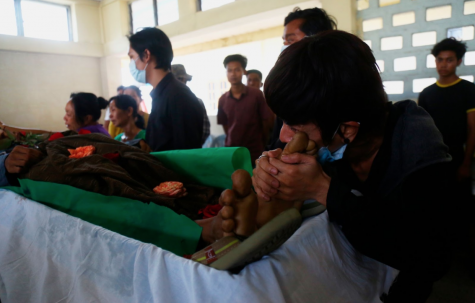
Unfortunately, this still means that family members have to identify the body before burning it, often leaving them traumatized to see their disfigured loved ones. This abuse is one of the many tragedies that Burmese people face on a daily basis. However, this violence is nothing new–instances like this have happened since the 1980s, but the fight towards a new government could not succeed because of the military powerhouse. In other words, some form of geneocide caused by the military has always existed, whether it targets the civilians or groups of indigenous tribes.
Myanmar has been in this cycle of oppression and civil disobedience over and over again, playing tug of war with power and freedom with the military since the beginning of Myanmar’s independence.
I want a better tomorrow for Myanmar: where the people are allowed to speak their mind, whatever their opinions may be. I wish for Myanmar to start funding higher education again, so more teenagers have the opportunity to learn at a local college. As a suggestion, all colleges should be allocated back to Yangon, where it used to be the city of colleges. My family wishes for safety from an oppressive military against the people, to stop the negative social stigma, rape, assault and mass murder of the tribes.
Equality. Such a simple word with a simple meaning, yet it’s so difficult to obtain. For Myanmar to achieve this, the government needs to be completely reformed. For example, according to the latest Myanmar Constitution, the military holds 25% of the House, and to pass an amendment, more than 75% of the House needs to pass it. Not to mention, it was the military who wrote the Constitution.
A citizen said, “We just want a peaceful life. But how can we live humbly if our neighbor’s husband just got shot?”
Fighting the military is a difficult task, with their seemingly endless bundles of arms and their close relationship with industrial countries. Yet, perseverance and civil disobedience of the people is slowly getting international attention.
Though not breaking news, more and more people are becoming aware of this situation. But for now, the Myanmar citizens stand alone in the dark night, banging their drums and disrupting the quiet environment in the hopes someone will hear.


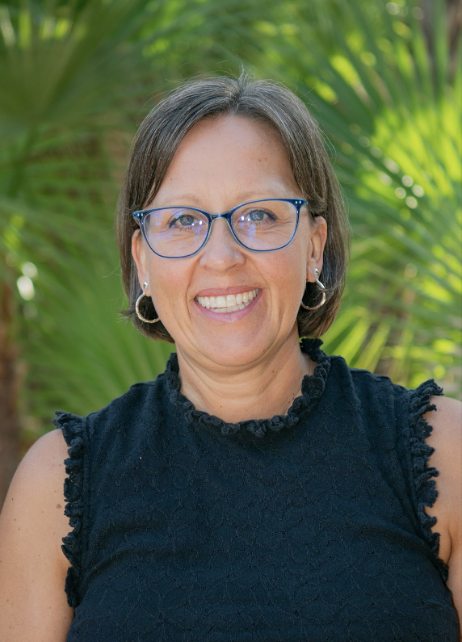
Susan Alexander • May 24, 2021 at 1:40 pm
Thank you for writing this article. When I was teaching sixth grade years ago, we read a YA novel called Bamboo People that addressed the ongoing oppression of the citizens of Myanmar. Since then, I have tried to keep abreast of what’s happening there. Perhaps a group of us who are interested could read the book and discuss ways to become more actively involved.